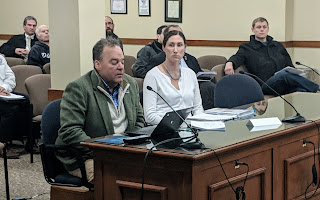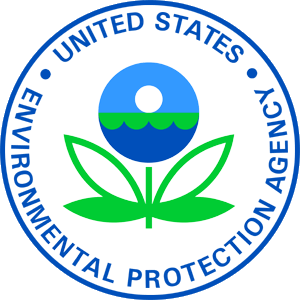"Have you ever played on the field at Beaver Pond in Franklin, MA? Many kids have. Little do they know, discarded turf from the field has been decomposing in the pond’s wetlands for over two years."Continue reading the Pantherbook article online
https://franklinpanthers.us/top-stories/2019/12/11/toxic-turf-at-beaver-pond/
The Pantherbook posting was prescient as the Boston Globe published this:
"Amid growing concerns about toxic chemicals in the water supply, state regulators Friday announced significant new limits on the human-made compounds in drinking water and approved new requirements ordering polluters to clean up contaminated soil and ground water.
The long-awaited rules come as environmental officials acknowledge that the per- and polyfluoroalkyl chemicals, known as PFAS, have been found in a growing number of communities across the state.
The chemicals, which have been linked to cancer, low infant birth weights, and a range of diseases, have been found so far in 28 of 37 municipal water systems that have provided test results to the state Department of Environmental Protection, officials said this week. Of those, 12 found that the amounts exceed the proposed standards for drinking water."Continue reading the article online (subscription may be required)
https://www.bostonglobe.com/metro/2019/12/13/massachusetts-issues-new-standards-for-forever-chemicals-water-supply/dz25i9Sk92QfiDl5TeSJFL/story.html
And as an update to the previously shared listing on the "turf issue":
What we know:
- The prior conversations around the field replacements (completed in 2017) were centered around the crumb rubber infill. The Town spent more for an acrylic coated infill (which apparently was installed), the issue now is NOT with the infill but the with chemicals used to treat the carpet itself.
- A third party filed a complaint with DEP about the old turf stored at the Beaver St fields
- Article in TheIntercept about PFAS found in the turf itself https://theintercept.com/2019/10/08/pfas-chemicals-artificial-turf-soccer/
- Article in the Boston Globe alleging potential issues with the water supply and shared via Franklin Matters https://www.franklinmatters.org/2019/10/we-will-work-with-dep-to-resolve-matter.html
- The Franklin community on Facebook reacts in the conversation around the article and issue
- Town Administrator Jamie Hellen makes statement at Town Council meeting 10/16/19 https://drive.google.com/open?id=14VSvuZvTifTbeHO4bWFtIy2YxVdjRF4O
- Updated 12/5/19 - Town Administrator Jamie Hellen makes statement at Town Council meeting 12/4/19 referring to the DEP letter https://drive.google.com/file/d/15WMp_zZiMXs_7MfpUQJd5hgtaVbrlkY_/view?usp=sharing
- Updated 12/13/19 - While PFAS in the water supply was tested by Town of Franklin once in 2018, is PFAS still being tested by ToF now? No, nor are they required to do so (although as the final testing standards issued 12/27/19 are evaluated, this may change).
- Updated 12/13/19 - What will the State do with PFAS and the recent revelations (if anything)? The State just issued new testing standards to be finalized by 12/27/19 https://www.mass.gov/lists/preview-of-the-final-pfas-related-revisions-to-the-mcp-2019
What we don’t know:
- What happened to the Conservation Commission mitigation measures from when the field was first installed (in 2004?)?
- Where was the old carpet and bags of unused infill taken?
- What will the Federal agencies do with PFAS and the recent revelations (if anything)?
 |
| bags of the acrylic coated infill ready for install at FHS in August 2017 |
 |
| new turf carpet being installed at Beaver St field in August 2017 |







